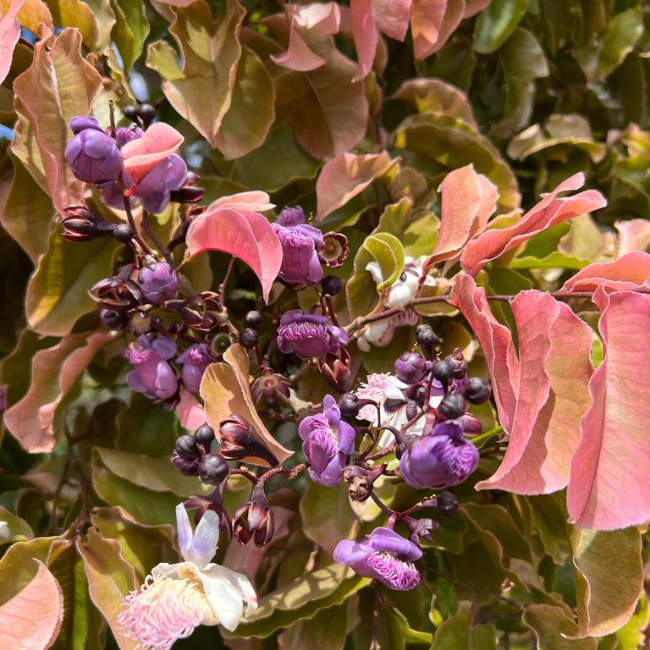
The Mystery of the Exotic Monkey Pot Miracle
Tropical Fruit World (TFW) is renowned for its collection of rare and exotic fruits and plants, some of which are rarely found elsewhere in Australia. Among these treasures is the Monkey Pot Tree, scientifically known as Genus Lecythis.
Native to Central and South America, the Monkey Pot Tree relies on a rather unique pollinator, the Xylocopa Frontalis, a special carpenter bee native to Brazil. These bees transfer fertile pollen between Monkey Pot flowers, kickstarting the fruiting process.
In a twist to this story. The carpenter bee doesn't call Australia home, leaving no record of the Monkey Pot ever bearing fruit in the country. Until one remarkable day when the unthinkable happened – the Monkey Pot Tree at Tropical Fruit World started producing fruit, a phenomenon that caught the attention of scientists and media outlets across Australia and the world.
The Australian rare fruit council pointed us in the direction of Professor Scott Moris’ work, as he studied the Lecythis Genus and their pollinators in South America identifying the unique entomology pairing of each flower to a specific insect, bat or moth, in the Lecythis trees. His work at the New York Botanic gardens revealed a hint as to how Monkey Pot trees were baring fruit at TFW in Australia.
Our founder and farm team observed a group of birds feasting on the flowers of Monkey Pot trees, the blue-faced honeyeater, a bird species that calls our farm at Tropical Fruit World home. These birds unwittingly play a crucial role in pollinating our Monkey Pot flowers, enabling the trees to bear fruit.
The blue-faced honeyeater, a unique bird species that calls our farm at Tropical Fruit World home. These birds unwittingly play a crucial role in pollinating our Monkey Pot flowers, enabling the trees to bear fruit.
With tiny hairs on their beaks, blue-faced honeyeaters unintentionally pick up fertile Monkey Pot pollen and transfer it to other flowers as they feed. In doing so, these remarkable birds mimic the vital role that female Xylocopa Frontalis bees play in pollinating Monkey Pot trees in the Amazon.
The discovery of this fascinating partnership between our Monkey Pot trees and the blue-faced honeyeaters sheds light on the extraordinary ways nature adapts, and thrives in unexpected places. Here at Tropical Fruit World, it also deepens our appreciation for the vital role pollinators play in the vibrant life of our exceptional farm, where a diverse array of trees and plants flourish.



Leave a comment